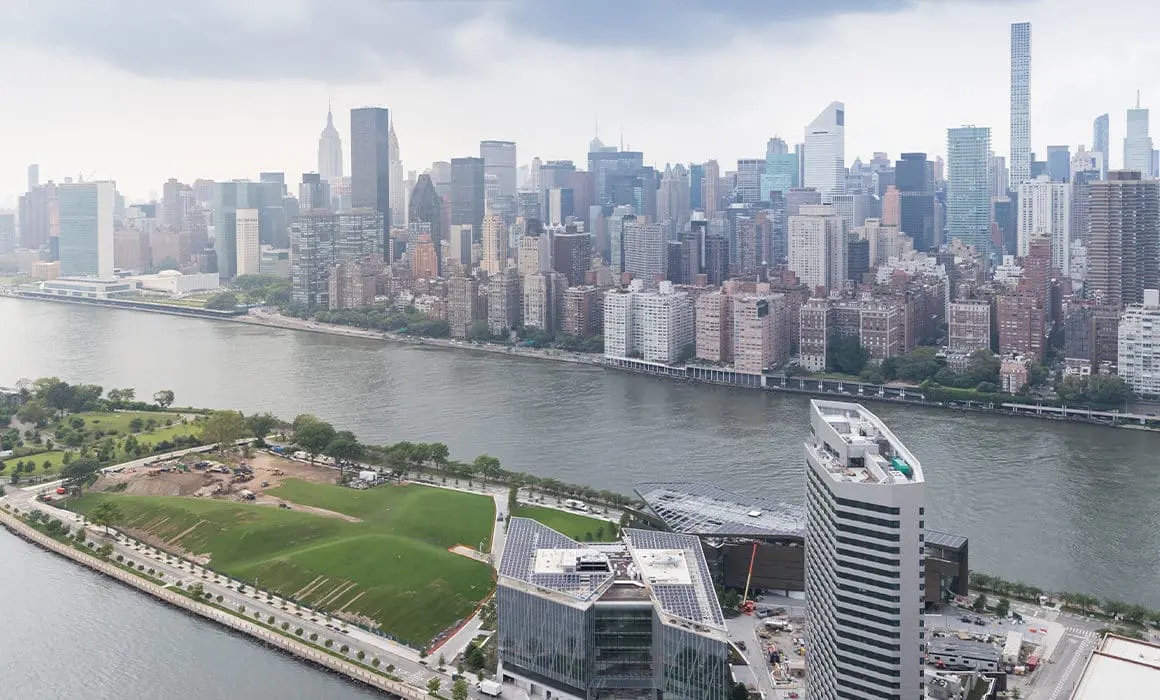Urban Tech at Jacobs Technion-Cornell Institute takes a People-First Approach

We’ve got so much technology at our disposal, yet cities continue to struggle with problems such as air pollution, congestion, and homelessness. “How can we leverage the power of technology to make cities stronger, fairer, and more resilient?”
Michael Samuelian, Founding Director of the Urban Tech Hub at the Jacobs Technion-Cornell Institute at Cornell Tech posed — and answered — that question during a panel discussion earlier this year. “We (hub researchers) will build bridges between the academic world and tech industries, with government in the mix,” he said. “Our secret sauce,” he revealed, is not research for research sake, “but to apply research to real-world problems, think about how our faculty can address these problems, and how technology can be used as solutions.”
As such, the Urban Tech Hub, the newest academic concentration at the Jacobs Technion-Cornell Institute, will be structured around three pillars:
- applying tech research
- expanding the tech workforce by educating the next generation of leaders and doers focused on improving cities
- engaging the community
Samuelian hopes to accomplish these goals through a bottom-up approach. “We don’t always get the best solutions by getting a bunch of Ph.D.s in a room, but by engaging a community. Putting people first.”
Rather than imposing technologies on urban planning, he intends to work with city leaders and local communities to balance industry trends with the public’s needs. “Tech industries often move too fast while cities often move too slowly to absorb the impacts of new digital technologies,” he said. “We can be that calming voice that helps mediate the push of technology with the pull of government.”
Samuelian was joined on the panel by Sharon Yavo Ayalon ’01, Ph.D. ’19, an architect, Technion alumna, and postdoctoral associate at the Jacobs Technion-Cornell Institute. She spoke about using Jacobs’ expertise in advanced technology and big data to further her work on urban renewal and social inequalities. In one project, she is creating a digital twin of Roosevelt Island, using real-time data and other sources to monitor systems and prevent problems before they occur. Dr. Ayalon is also helping New York City collect vital information on the COVID-19 pandemic with research tracking urban mobility and space occupancy under the city’s social distancing policy.
The Urban Tech Hub, aimed at making cities more livable, adaptable, and connected, is the third, two-year master’s program offered at the Jacobs Technion-Cornell Institute. It follows Connective Media, which graduated its first cohort in May 2017, and Health Tech. Despite the pandemic, Urban Tech has attracted nearly 30 students to its inaugural class, from a variety of disciplines including computer science, architecture and town planning, economics, and engineering.
More Entrepreneurship stories

The Technion: 100 Years at the Helm of Israeli Innovation


